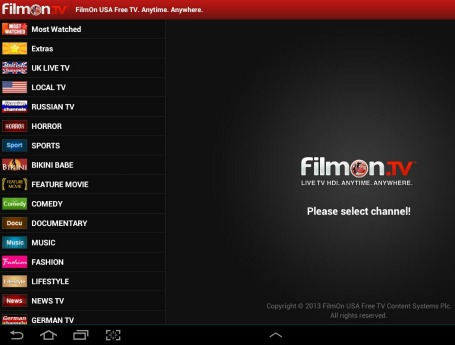FilmOn's David Pitches MVPD Redefinition At FCC

The smarter way to stay on top of broadcasting and cable industry. Sign up below
You are now subscribed
Your newsletter sign-up was successful
Alki David, founder of linear, Internet-based TV distributor FilmOn, was in Washington Thursday and tells B&C he met with representatives of all the FCC commissioners and a couple of commissioners themselves. He was there to encourage the FCC to approve a Media Bureau Notice of Proposed Rulemaking that defines linear over-the-top providers as MVPD's.
David says he has already reached out to broadcasters about carriage and says he is confident many will take him up on it.
The MVPD definition item has been circulated to the commissioners, but was not put on the agenda for the November public meeting. David said he thought it could still be added to that meeting, but said that in any event he was confident the commissioners would approve it. "It's gonna happen," he said. He certainly hopes so.
Like Aereo, FilmOn was the target of broadcaster lawsuits and court injunctions over efforts to distribute TV station signals without paying a copyright fee
FilmOn and Aereo both argued they should not have to pay a copyright fee for broadcast programming because they are not transmitting a performance, but instead providing technology to remotely access a recording of broadcast TV station signals that users are free to access and copy without payment. In the Aereo case, the Supreme Court said they did have to pay such a fee.
Last month, Aereo founder Chet Kanojia also pressed FCC officials to approve the item.
David said he met with Wheeler adviser Gigi Sohn; Media Bureau chief Bill Lake and staffers; FCC commissioners Mignon Clyburn and Michael O'Rielly; Matthew Berry, chief of staff to commissioner Ajit Pai; and Clint Odom, policy director for commissioner Jessica Rosenworcel.
The smarter way to stay on top of broadcasting and cable industry. Sign up below
Wheeler has certainly signaled he thinks the FCC needs to change the definition as a way to increase choice in programming and competition to cable bundles.
"As you know, a startup called Aereo has already proposed doing this [being an over-the-top video competitor], but the broadcasters were able to stop it in court, in part because of the old rules of the FCC,” Wheeler said in a speech last week. Aereo wasn’t the reason for the new rules, but the idea that entrepreneurs should be able to assemble programs to offer consumers choices is something that shouldn’t be hindered by the FCC."
David said his talking points included that he was not able to negotiate with some cable channels. He said he carries some 25 cable channels already, mostly minority channels that haven't gotten a lot of carriage elsewhere, but that he has not been able to negotiate with some of the majors.
He also pointed out that he had been unable to negotiate carriage with broadcasters in the 12 markets the service is in, but hopes to do so. He is also seeking MVPD status from the Copyright Office.
The Copyright Office has in the past said over-the-top providers did not qualify as MVPD's eligible for the license, but deferred a decision until the FCC or the courts weighed in.
David said he did not hear a discouraging word from any of the offices about the MVPD redefinition proposal.
Contributing editor John Eggerton has been an editor and/or writer on media regulation, legislation and policy for over four decades, including covering the FCC, FTC, Congress, the major media trade associations, and the federal courts. In addition to Multichannel News and Broadcasting + Cable, his work has appeared in Radio World, TV Technology, TV Fax, This Week in Consumer Electronics, Variety and the Encyclopedia Britannica.

